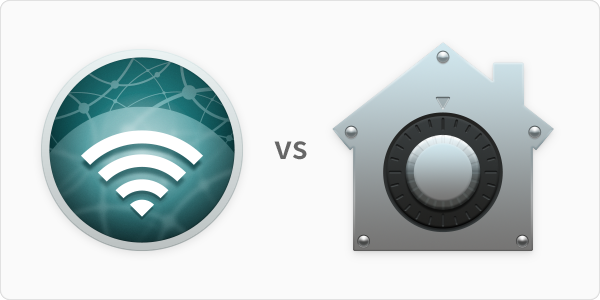
Advertisement If you’re a new Mac user (or even if you’re not), you might be confused about what kind of security software you do and don’t need. The truth is, for most people, OS X is fairly secure out of the box. And there are a number of programs out there that potentially do more harm than good. Which Mac security programs can be trusted? And do I really need them?
Let’s go over basic requirements for a Mac firewall, anti-virus, cleaning apps and password managers and learn about a few free apps that can be trusted — as well as some apps that probably shouldn’t be. Firewall: Stick With What’s Built In, Or Buy Dig through your Mac's settings and you'll find a firewall, turned off by default. Isn't that insecure? Why would Apple be so irresonsible?? Probably not. The built-in protection of OS X means any unused port is closed off, so most of the functionality people think of when they say “firewall” is already provided as part of the operating system. For more control, you can enable the firewall in System Preferences > Security & Privacy to block a few specific apps from using the network.
Page 1: Best Antivirus Software and Apps. Best Mac Antivirus Software. You need an antivirus program on your Mac. That statement may cause some Apple users to argue or walk away, but 2017 has.
For most users, this is more than enough protection. If you’re the sort of user who wants precise control over which apps can and cannot access the Internet – and also the sort of user knowledgable enough to use an advanced firewall – look into.
This is probably We've shown you how to enable the included firewall in OS X, but it's quite limited. It allows you to block traffic on a per-app basis, but beyond that there's not a lot of configuration., giving you a fine level of control and access to all networking information while still managing to feel like a native Mac application. Not everyone needs a dedicated Mac firewall, but if you want one check out Little Snitch first. Business accounting software for mac. Just be warned: a lot of programs on your Mac use the Internet, so you’re going to see a lot of warnings when you first start using this. If you don’t know what you’re doing, you might end up disabling something you need, so only dive in if you’ve got some time on your hands to look things up and make a bunch of decisions.
Anti-Malware Software: Scan Occasionally With Mac malware consistently makes headlines in the tech world, mostly because of its novelty. Decades of arrogant Mac users talking up how they “can’t get viruses” are probably a big part of this, but even without the fanboy factor the relative scarcity of malware on the platform means any bit of malware is going to make headlines. Let’s be clear: Macs can get malware. Some of it is pretty nasty. Even so, Mac malware is not a terribly common problem for the average Mac user, especially if you’re not the sort of person who seeks out pirated software.
When you think you have malware, the problem is almost always something else entirely. And in many cases, Apple’s updates will quietly disable malware on your system without even telling you. For this reason, I think any kind of always-running anti-malware software is overkill. Paying for and installing something like Norton or Sophos to constantly run in the background and ask you to install updates isn’t just overkill, it could slow down your Mac and potentially cause other problems. Instead, I recommend periodic scans. If you suspect malware, run though our Is your Mac acting kind of. Whether you're seeing adverts you can't explain, or your system is unreasonably slow, you might think the problem is malware.